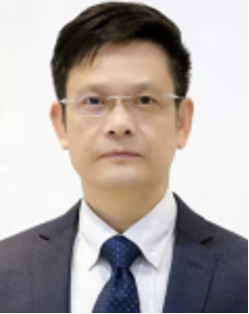High-throughput materials fabrication technology and its application in the development of novel titanium alloys
Kechao Zhou*, Xiaoyong Zhang, Chao Chen
State Key Laboratory of Powder Metallurgy, Central South University, Changsha 410083, China
EXTENDED ABSTRACT: In response to the long development cycle of structural alloys by the conventional trial and error, high-throughput fabrication methods of titanium alloy were designed and the gradient distribution of composition, structure and microstructure was obtained on a single sample, which provided a data basis for the rapid design of materials. Diffusion multiples were fabricated by hot isostatic pressing, which gained the corresponding relationship between the alloy composition and properties by using the mutual diffusion of different composition alloy elements to form a continuously distributed composition gradient. A double conical hot compression specimen was designed, adopting the continuous change of the deformed section to realize the continuous change of the strain to form a strain gradient in a single specimen, and rapidly establish the relationship between deformation, structure and properties of the alloy. Gradient heat treatment equipment was built with conical graphite heating element, which possess different heating efficiencies in different cross sectional areas, thereby forming a temperature gradient along the height of the cone and obtaining the effect of continuous temperature changes on the structure and properties of the alloy. Based on high-throughput material fabrication technology, the influence of composition, heat treatment and deformation process parameters on the grain size and phase distribution of titanium alloys was quickly obtained, realizing the rapid optimization design of links among "design-forming-heat treatment" in the titanium alloy, and successfully applied to the modification of TC4, TB17, TC18 titanium alloys and development of new high-strength and toughness titanium alloys.

Kechao Zhou is a professor and the director of the State Key Laboratory of Powder Metallurgy, Central South University and is currently the deputy president of Central South University. He is currently a member of the National New Materials Industry Development Strategy Consulting Expert Committee, an expert in the overall expert group of the "Thirteenth Five-Year” national key research and development plan "Pivotal Basic Material Technology Promotion and Industrialization", vice chairman of the Chinese Society for Materials Research, and a review of materials disciplines by the State Council Member of the group, member of the 7th Science and Technology Committee of the Ministry of Education, member of the Material Teaching and Steering Committee of the Ministry of Education. He has long been engaged in the research of powder metallurgy new technologies and new materials and high-throughput synthesis technologies, titanium alloys, copper alloys and electrode materials and other high-performance metal structural materials. In recent years, he has devoted himself to the research of chemical vapor deposition diamond electrodes and composite materials. He has presided over a number of major national projects such as "High-throughput material synthesis technology platform", "Metal material genetic engineering innovation and intelligence introduction base", "High-performance iron-based powder metallurgy materials surface densification technology" and "Aluminum electrolytic inert electrode metal ceramic material technology" etc. He has published more than 150 articles and holds 30 patents, and published 1 academic monograph. His relevant research outputs are applied in the fields of carbon-free aluminum metallurgy, high-risk wastewater treatment and 5G electronic packaging. He has cultivated more than 30 post-doctoral, doctoral, and master's degree students and won 3 first prizes at the provincial and ministerial level.